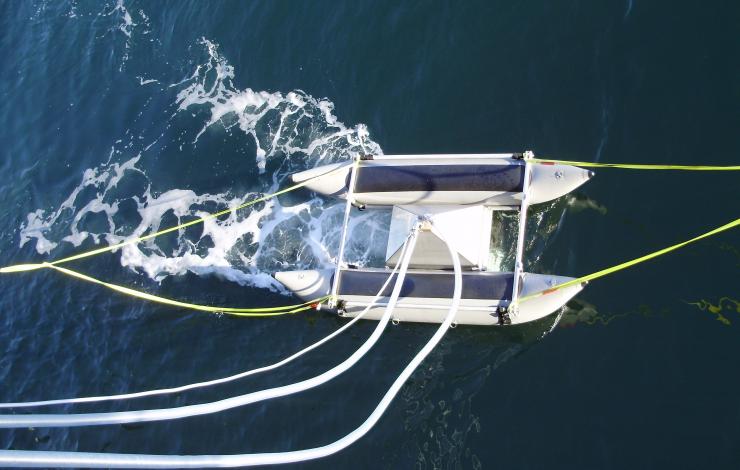March 20 - April 13: PMEL's Atmospheric Chemistry Group is currently participating in the fourth and final NAAMES (North Atlantic Aerosol and Marine Ecosystem Study) cruise aboard the Woods Hole Oceanographer Institution R/V Atlantis. NAAMES is a five-year NASA funded study consisting of four, combined ship and aircraft campaigns that are each aligned to a specific event in the annual plankton lifecycle to assess how changes in plankton production and species composition affect aerosols and clouds and their implications for climate. The North Atlantic is home to the world' largest plankton bloom which stretches from North America across the Atlantic to Europe. Plankton form the base of the marine food web and can impact the productivity of fisheries and serve as an important carbon sink for atmospheric greenhouse gases. NAAMES is an interdisciplinary investigation resolving key processes controlling marine ecosystems and aerosols that are essential to our understanding of Earth system function and future change. The study aims to make ship- and aircraft-based measurements that, when combined with satellite and ocean sensor data, will help clarify the annual cycles of ocean plankton and their relationship with atmospheric aerosols.
PMEL scientists, Lucia Upchurch and Derek Coffman, are onboard the R/V Atlantis measuring properties of freshly emitted sea spray aerosol using Sea Sweep and quantifying the number production flux of sea spray aerosol with a Marine Aerosol Reference Tank (MART). The parallel airborne and shipboard observations will provide the crucial link between local-scale processes and properties quantified at the basin-scale through satellite remote sensing. Through integration of ship, airborne, modeling, and sustained satellite and autonomous sensor approaches, predictions of ocean ecosystem and aerosol changes in a future warmer ocean will be improved. As such, NAAMES will directly address NOAA’s strategic long-term climate goal of improving our scientific understanding of the changing climate and related impacts.
PMEL's Atmospheric Chemistry Group is dedicated to international field campaigns and long term measurements to determine the impact of atmospheric aerosol particles on climate and air quality. Learn more about the group here and the cruise here.



